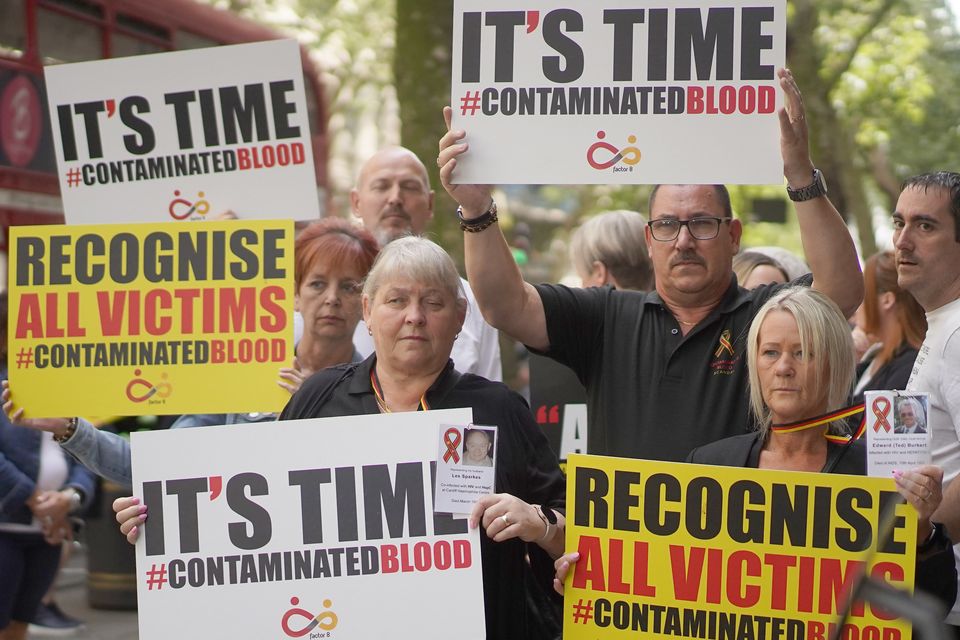There has been a “groundswell of discontent” over the way the compensation scheme for the infected blood scandal is being managed, the judge that led the probe into the issue has said.
Sir Brian Langstaff has taken the unusual step to write to Paymaster General Nick Thomas-Symonds to highlight concerns of members of the infected blood community.
He said that he is “concerned” that the confusion surrounding the scheme has been allowed to develop.
We need your consent to load this Social Media content. We use a number of different Social Media outlets to manage extra content that can set cookies on your device and collect data about your activity.
Campaigners contacted Sir Brian earlier this month highlighting “increasing concern” that the recommendations from the Infected Blood Inquiry were “bring ignored by Government”.
They said that they have been “frustrated” by a lack of ministerial engagement with the infected blood community.
More than 30,000 people were infected with potentially deadly viruses between the 1970s and early 1990s as they received blood transfusions or blood products while undergoing NHS care.
Some 3,000 people died as a result and survivors are living with lifelong health implications.
Sir Brian made his final recommendations on compensation in April 2023, saying victims should not face any more delays for redress.
Chancellor Rachel Reeves announced £11.8 billion in compensation for the victims of the scandal in her October Budget, which the Infected Blood Compensation Authority (IBCA) has been tasked with administering.
Sir Brian wrote: “Since the welcome announcements that significant compensation was to be paid through the Infected Blood Compensation Authority, there has been a groundswell of discontent with the way in which compensation, so long overdue, has been and is being managed.
“It is of concern to me that what was initially unease and some confusion has been allowed to develop to an extent that should make any objective observer deeply uncomfortable.”
People infected and affected by the scandal have been calling for justice for decades (PA)
He welcomed news that Mr Thomas-Symonds is to meet with members of the infected blood community, but he said: “Your engagement with campaign groups this week would appear to be the first time that campaign groups have had an opportunity to engage directly with the Government since the publication of the scheme summary in August, despite repeated requests for meetings with the Cabinet Office.”
Sir Brian added: “The toll on campaign groups of supporting their members over the past few months, when they have more and more been expressing their frustrations, without access to legal advice or public funding should not be underestimated.”
And confusion over some elements of the scheme may have been avoided “with better engagement,” Sir Brian suggested as he highlighted the “need for openness and transparency”.
Sir Brian also pointed to concerns among the infected blood community that “the real decision-making appears to be being undertaken by officials within the Cabinet Office rather than by IBCA.”
He concludes: “I hope that your personal involvement leads to swift improvements; that from now on people infected and affected will be involved in the decisions that affect them, and that both they, and the public, will see from the results that the past is truly behind us.”
The Cabinet Office has been approached for comment.
